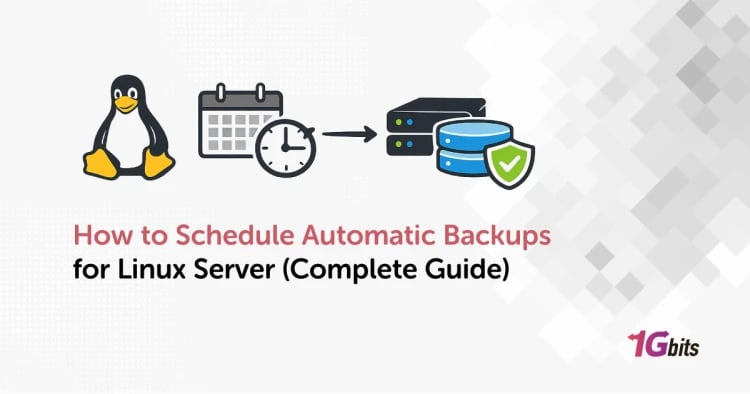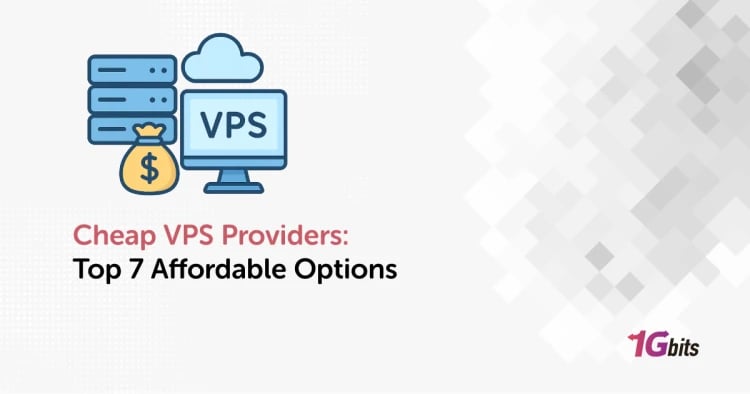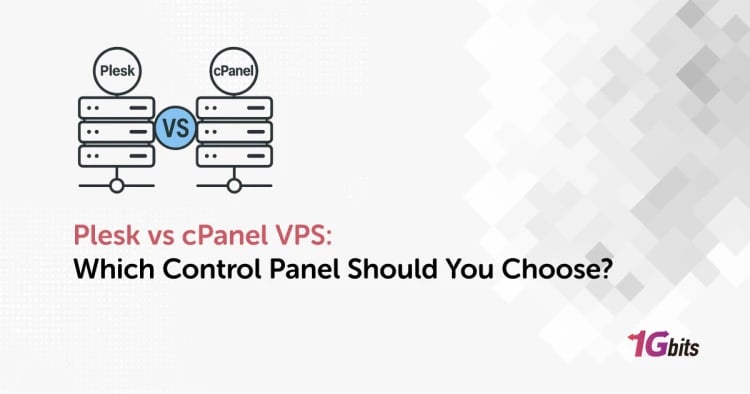A virtual private server (VPS) is a multi-tenant hosting service that leverages virtualization to create multiple virtual servers from one powerful server. Users access VPS through the internet. VPS is offered by internet hosting service providers.
When web owners or businesses pay for web hosting services, they buy rights or the space to store their websites’ resources on the host’s servers. You can choose to buy a server shared with other users, buy a server all to yourself, or purchase a virtual private server.
So, how to buy VPS server? As aforementioned, hosting providers use virtualization to create multiple virtual machines or servers from a single physical server. The virtual servers created have access to dedicated resources. They are also private, meaning they don’t interact with the other servers.
When selecting a VPS, it's also essential to consider the location of the server. The VPS location can significantly impact the speed and performance of your website or application. Be sure to choose a provider that offers servers in regions close to your target audience for optimal performance.
In essence, having a virtual private server is like having dedicated server hardware, and you get to enjoy the benefits that come with it.
For a deeper understanding of what VPS hosting entails and how it differs from other hosting options, check out our comprehensive guide on What is VPS Hosting?.
Who Needs a Virtual Private Server?
Assess the health of your website and look out for the following signs to establish if you need a virtual private server.
1. Your Traffic Is Growing
Shared hosting is usually a reasonable solution for websites that are just getting started and are not handling a lot of traffic. However, when your digital marketing efforts and SEO start paying off and getting more traffic, you have to reconsider your hosting.
A virtual private server will ensure you don’t have challenges with speed as your website traffic grows, and it doesn’t crash in worst-case scenarios. If you are expecting an increase in traffic, you may want to consider upgrading to VPS to ensure your visitors are getting the best experience.
2. You Have Some Security Concerns
If you run an eCommerce website or any other kind of platform that holds sensitive data such as credit card information for online payments, then a VPS with good security features would be an option you want to consider.
VPS comes with high-level security features you can count on. It also allows monitoring and resources backup, which increases the dependability of your website.
3. You Intend To Integrate A Custom Software
Shared hosting is recommended for websites powered by standard content management systems like WordPress. If you want to install a custom content management system, you need a hosting service that gives you more control.
To integrate other programs like bookkeeping software, you will need a server that performs optimally around the clock. Working with a shared server at this point will only end up in frustration as some functionalities may be limited when using the shared server. With a VPS, you get to enjoy control over complex programming actions.
If you are constantly getting internal server errors or 50X errors, it is a sign you need to upgrade to VPS. If you are getting the errors, then chances are high your website visitors are facing the same challenges.
You might consider exploring various options for your VPS setup to ensure optimal performance. Check out our guide on VPS Operating Systems to learn about the best systems that can enhance your server's stability and reliability.
How Much Will VPS Cost You?
It is important to remember that VPS hosting services are not created equal, and therefore, the prices of the solutions will vary. Depending on the features, the solutions could cost anywhere from as low as $10 to $60, depending on your needs. When choosing a VPS solution, you may want to consider several factors such as the disk space, computing power of the server, and bandwidth, to mention a few.
Additionally, if you're looking for affordable and reliable options, you may want to explore VPS rental, which offers a range of customizable plans to suit different needs and budgets, ensuring you get the best value for your money.
Here are the primary factors that affect the cost of VPS.
1. Bandwidth
The stability of your website when accessed by multiple businesses depends on how suitable the server bandwidth is. Unlike in shared solutions, VPS bandwidth supports a single machine, creating more stability. Stability comes at a cost, making VPS pricier than shared hosting.
If you want to enjoy good data transfer speed, you have to work with a VPS plan that is not limiting the bandwidth. Note that VPS providers have varying policies for bandwidth. They could have a free bandwidth in and a charged bandwidth out. Others may have friendly prices for the bandwidth but limit your speed. In other cases, they may provide unlimited bandwidth.
Keep in mind that all the variances attract different prices.
2. Scalability
While tons of VPS hosting providers provide the solution at very low costs, you need to ask yourself how scalable the server is. Cheap is expensive, and if you choose a solution that is not scalable, you will end up paying more for a solution with resources that meet your website’s requirements.
Scalability will likely increase the cost of a VPS solution, but it is worth it. For instance, you will need unlimited bandwidth to work with your fluctuating or growing traffic. A scalable solution can integrate features and resources on the existing server without interfering with the performance or continuity of your website.
When you talk about scalability, you should be looking at resources like the CPU core, RAM, and raw storage, to mention a few.
If your website needs to grow, you should be able to request additional RAM. The VPS should provide room for growth. Scalable VPS is likely to cost more than static ones.
You can also consider trying a trial VPS to test its features and performance before making a final decision. This will allow you to assess whether it meets your specific needs and provides the scalability you're looking for.
3. Managed And Unmanaged VPS
The cost of a managed VPS will be different from that of an unmanaged solution. With a VPS, you can choose a self-managed plan or get someone to care for your server. If you are working with a self-managed plan, tweaking the system’s settings, installing tools, maintenance, updates, and security patches are on you.
Alternatively, you can opt for a managed plan where you have the host’s support team support with all those actions. Due to the involvement and time investment from the team, you will pay more for a managed service. However, if you are looking for an affordable yet reliable option, consider exploring our Cheap VPS plans that offer excellent performance and flexibility tailored to your needs.
Take Away
When considering how to buy VPS, it’s crucial to understand that the best solution can vary significantly based on your specific hosting needs and the location of your server. For instance, if your target audience is in Europe, you might explore options like Lithuania VPS, which provides low-latency access for users in the Baltic region. Alternatively, if you require high-speed connectivity to Central Europe, a Zurich, Switzerland VPS might be ideal.
For those targeting the UK market, UK VPS solutions offer compliance with local data regulations and excellent performance for British users. Businesses seeking a Scandinavian presence could benefit from Copenhagen, Denmark VPS, which ensures fast connections to Nordic countries.
In addition, if you are looking for reliability in the Nordic region, consider Finland VPS hosting for its secure and efficient services. For a more expansive reach, Canada VPS provides a great option for North American users, while Singapore VPS and Hong Kong VPS serve as excellent choices for businesses focused on the Asian market, ensuring fast access across the continent.
For users in the Southern Hemisphere, Australia (Sydney) VPS offers local hosting solutions that cater to Australian businesses. Meanwhile, Germany VPS options are ideal for companies needing robust performance and data protection within the EU.
Ultimately, when you want to buy VPS, focus on finding a provider that offers competitive pricing, scalability, and features tailored to your website's demands, ensuring you get the most value for your investment. If your needs specifically include a reliable Windows VPS hosting solution, consider exploring tailored packages that provide robust features to meet diverse hosting requirements.
People also read:






![What Is Cold Data Storage? ❄️ [2026 Guide] What Is Cold Data Storage? ❄️ [2026 Guide]](https://1gbits.com/cdn-cgi/image//https://s3.1gbits.com/blog/2026/02/what-is-cold-data-storage-750xAuto.webp)
![How to Change VPS Password 🔑 [Windows & Linux] How to Change VPS Password 🔑 [Windows & Linux]](https://1gbits.com/cdn-cgi/image//https://s3.1gbits.com/blog/2025/12/how-to-change-your-vps-password-750xAuto.webp)


